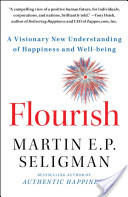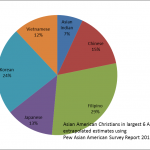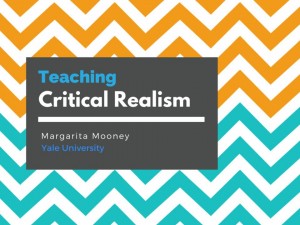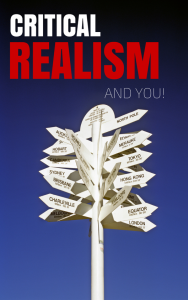Part 3 in a series on Women at Work.
Anne Marie Slaugther’s article in the Atlantic, “Why Women Still Can’t Have it All,” begs the question what is “It All?” Although most of her article discusses women having it all (or not having it all) with regards to family and careers, older generations of women were taught that a woman’s place was in the home; a woman couldn’t both have a big career and raise a family. Slaughter’s generation set out to break barriers, reach top posts in universities, law firms and public office, and also have fulfilling family lives.
So, does a big career and a happy family life = “It All”? There is no doubt that many women want a career and family, especially the college-educated women, women with law degrees and women with Ph.D.s, that Slaughter was primarily addressing. My field, sociology, dedicates pages and pages of our publications to studying occupational attainment, educational attainment, family formation and family disruption. We know from the data that not nearly as many people have “It All” as Slaughter defines it as those who would like it.
That said, would those who have “It All” (defined as career + family) be fulfilled? I’m not sure. Wealth, success, and a spouse and kids at home may certainly fulfill many aspirations, but does it fulfill them all? I think not.
My research and teaching recently led me to read work, mostly from philosophy and psychology, that has broadened my definition of what “It All” is. In an advanced social theory class I taught last year, I introduced students to philosopher Martha Nussbaum and her important book Women and Human Development: The Capabilities Approach. Cambridge University Press summarizes the objective of her book, in the following way:
“In this major book Martha Nussbaum, one of the most innovative and influential philosophical voices of our time, proposes a new kind of feminism that is genuinely international, argues for an ethical underpinning to all thought about development planning and public policy, and dramatically moves beyond the abstractions of economists and philosophers to embed thought about justice in the concrete reality of the struggles of poor women. Nussbaum argues that international political and economic thought must be sensitive to gender difference as a problem of justice, and that feminist thought must begin to focus on the problems of women in the third world. Taking as her point of departure the predicament of poor women in India, she shows how philosophy should undergird basic constitutional principles that should be respected and implemented by all governments, and used as a comparative measure of quality of life across nations.”
Whereas Slaughter was writing to women at the top of the economic ladder, Nussbaum addresses a similar question but for poor women around the world. Do women at the top of the economic ladder and women at the bottom want fundamentally different things? I think not. Nussbaum makes a great contribution in enumerating the list of fundamental capabilities that are universal–they cross class, race, and ethnicity. She rejects moral and ethical relativism, arguing forcefully that a just society can’t be relativistic about the goods people want or deserve. For Nussbaum, a feminist, moral relativism too often is used to justify why women not only don’t have “It All” by saying they simply don’t want “It All.” For example, Nussbaum argues that even if poor women don’t know that an education would be good for them, society is obligated to educate women. I couldn’t agree more.
Nussbaum and Slaughter’s works both harken back to an ages-old question addressed by Aristotle: what is the greatest good for human persons? What constitutes flourishing, a full life? Aristotle was clear that material things are necessary but not sufficient for flourishing. For Aristotle, the question is: what would people do as a good in and of itself, not just as a means to another end? In the answer to that question lies a deep truth about human persons.
Although it is certainly true that people strive for material or external things, for Aristotle, those things are really means to the end of eudaimonia, normally translated as flourishing. How does one acquire this end of flourishing? Through the rather difficult process of aligning ones internal motivations and one’s actions. Hence, for Aristotle, eudemonia is found in cultivating virtues, understood as ways of being that lead to ways of acting. He also thus breaks down a bit the means-ends disntiction in action: if the end is a virtuous life, the means must be enacting virtues.
 Does that sound too lofty and philosophical, too hard to understand enough to live? If so, don’t worry. I often wonder how to translate good philosophical ideas into good social science. Thankfully, my search has turned up a few tips. The former president of the American Psychological Association, Martin Seligman, published an important theoretically-grounded, empirically-based, book called Flourish that is written to be accessible to all readers and practical. As described in an excellent article about Flourish the New York Times, Seligman laments that many psychologists equate flourishing with happiness, understood as feeling good.
Does that sound too lofty and philosophical, too hard to understand enough to live? If so, don’t worry. I often wonder how to translate good philosophical ideas into good social science. Thankfully, my search has turned up a few tips. The former president of the American Psychological Association, Martin Seligman, published an important theoretically-grounded, empirically-based, book called Flourish that is written to be accessible to all readers and practical. As described in an excellent article about Flourish the New York Times, Seligman laments that many psychologists equate flourishing with happiness, understood as feeling good.
Seligman explains how his decades of research led him to define flourishing, or well-being, in 5 dimensions, which he calls PERMA: a) Positive emotions; b) Engagement; c) Meaning; d) Positive Relationships and e) Accomplishment.
How does this line up with Slaughter’s definition of “It All”? Slaughter seems to be focusing on positive relationships and accomplishment. Seligman’s definition of well-being comes much closer to Aristotle’s understanding of flourishing, though Seligman is clear to state that Aristotle is just one of many influences on his definition. Seligman and Nussbaum, in my view, bring back into focus the big picture: having “It All” must be much more than achievement, marriage and kids. Those things–which are undoubtedly very important–must be embedded in a meaningful life where one’s individual accomplishments are seen as part of a greater whole. Our lives need enjoyment and awe, something we can lose sight of in the quest for the perfect career and perfect family.
One virtue we can all start living is gratitude. Seligman found that people who were grateful to others, grateful to God, felt more positive emotions and had stronger relationships. I fully support those who want to strive to have “It All”, however you may define it, but along the way, let’s not forget to stop and give thanks for what we do have, right now, today, in this moment.
As my work on human flourishing and virtues continues, I hope to share more reflections from philosophy and social science to deepen our understanding of how to have “It All”, or perhaps more importantly, how to be thankful for all we have at this very moment.















